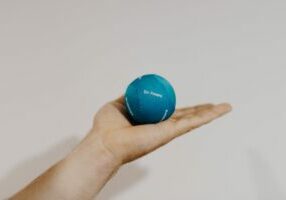Concussion and Your Child – What You MUST Know
A concussion is estimated to occur at a rate of 4 million cases per year and is considered the silent epidemic of kids health. It is estimated that only 1 in 6 cases of concussion are accurately diagnosed and managed, which means you as the parent need to know the facts if you are going to keep your kids safe.
The most common causes of concussion in sports are still football, soccer, and basketball, but there are many other causes of concussion as well. An injury to the neck, for example, a whiplash injury from a car accident or a bad fall, can also cause a concussion as the brain bounces around inside of the skull, causing bruising to the brain. A concussion is more common than kids than adults, as children’s brains are still developing.
The great news is that 80% of concussions, when properly diagnosed and managed, will improve in 10-14 days. Concussions can be difficult to recognize as a parent, because they are purely subjective, and can be confused with behavioral issues or just kids being kids. Here are the main signs and symptoms to look out for:
- A change in thinking or emotions (irritable, sad, overly emotional)
- A headache that occurs after the incident
- Vision change or light sensitivity
- Sensitivity to loud noises
- Complaints that they just don’t feel right
- Acting like they are foggy, dazed or just out of it
- Nausea
- Being super tired
- Balance issues
A concussion is considered a medical emergency if any of these symptoms are present.
- Loss of consciousness for any length of time
- Asymmetric movements
- Vomiting repeatedly
- Excessive sleepiness
- Dense confusion that does not change
Once the concussion has been diagnosed correctly, the only initial course of treatment is rest. Both physical and cognitive rest is imperative and essential. Also, please do not give your child ibuprofen as this will increase the likelihood of bleeding and could be dangerous if there is an undetected brain bleed.
Physical rest includes all physical activity; sports practice, PE, working out, playing intensely at home, bike riding, running, skateboarding and etc. Symptoms need to be 100% gone before returning to activity (usually at least one week) and activity must be returned to gradually. It is advised that activity is returned to gradually over a 1 week time period. When your child feels 100% okay and has been cleared by their Doctor, light aerobic activity can be tried, followed by a 24 hour rest period. If the child has no side effects from this, then aerobic activity can be increased and some light weights added, this is followed by another 24-hour break. This process is repeated over a 7 day period and should be closely monitored. It is contraindicated and dangerous to send your child back to physical activity too soon, especially activities like weightlifting. If your child is a student-athlete and has access to the school athletic trainer, use this person as they are an amazing resource for your child.
Cognitive rest includes time off school, reading, puzzles, computer work, texting, and avoiding fun stuff like TV, video games and social media. Similarly, cognitive activities must be slowly reintroduced, with a close watch on how your child feels. Pay close attention to complaints of eye fatigue, headaches, excessive tiredness, difficulty focusing and a shortened attention span. These are signs that your child is not ready to return to full cognitive requirements and you need to give them more time to rest. Talk to your child’s teachers and school counselor about getting accommodation for your child, whether it be more time for an exam or a modified workload.
An amazing resource is the Seattle Sports Concussion Center, a part of Seattle Children’s Hospital. This center is the most up to date and comprehensive resource that I know of. A founder of this Center is Dr. Stanley Herring, MD. He is a renowned expert on concussion research and management. I have personally attended his lectures and consider him a foremost expert. He was also instrumental in passing the Zackery Lystedt Law, which requires that parents, coaches, and students to be aware of concussion signs and symptoms and that an athlete is removed from play if a concussion is considered. The athlete will not be allowed to return to play until released from a licensed healthcare provider.
We will be hosting a concussion clinic here at Head 2 Toe in September. Come and learn this potentially life-saving information.
Dr. Annie
Exercises You Can Do at Home after a Visit to the Chiropractic Clinic
Stay active at home with exercises from ‘Exercises You Can Do at Home after a Visit to the Chiropractic Clinic’.
Read MoreAthletic Therapy: A Vital Component in Sports Rehabilitation
Discover the importance of athletic therapy in sports rehabilitation in our insightful blog on ‘Athletic Therapy: A Vital Component in Sports Rehabilitation’.
Read MoreA Comprehensive Guide to Spinal Therapy for Athletes
Discover the benefits of spinal therapy for athletes in our comprehensive guide ‘A Comprehensive Guide to Spinal Therapy for Athletes’.
Read MoreHow Chiropractic Techniques are Advancing in Pain and Injury Treatment
Discover the latest advancements in pain and injury treatment through innovative chiropractic techniques.
Read MoreSpine Rehabilitation: How Corrective Exercises Can Help with Posture and Pain Relief
Discover how corrective exercises in spine rehabilitation relieve pain and improve posture – read more now!
Read MoreCorrective Exercises: Your Secret Weapon Against Chronic Pain
Combat chronic pain with corrective exercises featured in ‘Corrective Exercises: Your Secret Weapon Against Chronic Pain’.
Read More




